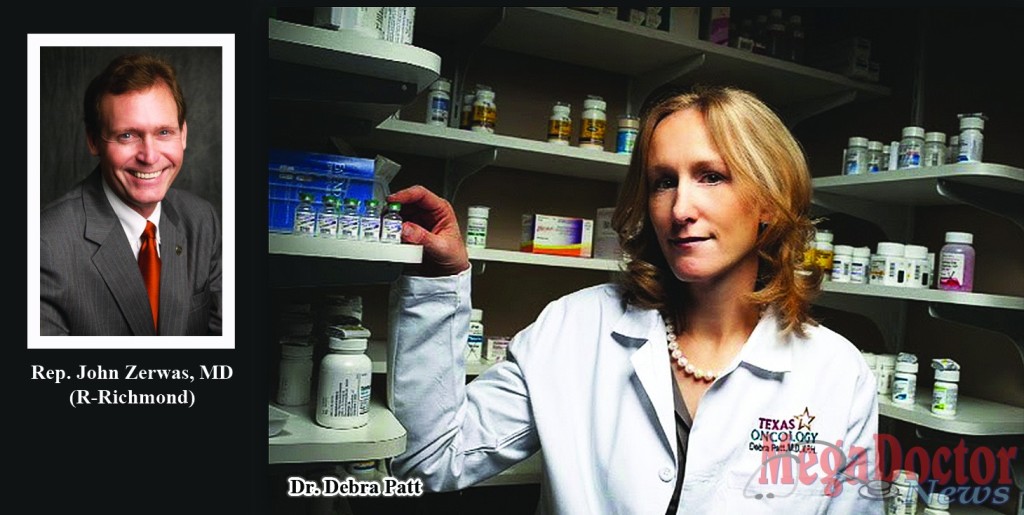
HPV Vaccination Helps Prevent Oral, Head and Neck Cancer
By Roberto Hugo Gonzalez,
Publisher of Mega Doctor News,
Big news: A vaccination is available to prevent a cancer. The vaccine, when given to preteens, can help prevent them from contracting oropharyngeal cancer, a head-neck cancer affecting the throat and tonsils. Human papillomavirus (HPV), for which a vaccine is available, causes more than 70 percent of oropharyngeal cancer cases. This particular head and neck cancer recently became the most common cancer that HPV causes, even more common than cervical cancer.
About 39,500 people will get oral cavity or oropharyngeal cancer in 2015, and 7,500 people will die from these cancers, according to the American Cancer Society. During Oral, Head and Neck Cancer Awareness Month in April, Texas physicians want to encourage parents to get their adolescents vaccinated.
“We now understand that HPV is an important risk factor for head and neck cancer,” said oncologist Debra Patt, MD, MPH, MBA, of Austin, and a member of the Texas Medical association’s (TMA’s) Committee on Cancer. “I have so many patients, mostly men, affected by this disease, and knowing that this is now largely preventable makes prevention efforts more important.”
HPV’s ties to cervical cancer have been widely reported, but oropharyngeal cancer has surpassed cervical cancer in number of cases, according to the Centers for Disease Control and Prevention. On average, 12,417 cases of HPV-related head-neck cancer are diagnosed annually, compared to 11,422 cases of cervical cancer. White men between the ages of 35 and 55 who don’t smoke are most frequently affected by head and neck cancer, almost four times more than women, according to the Oral Cancer Foundation.
HPV is the most common sexually transmitted infection in the nation. More than half of sexually active people will have the virus sometime in their lives.
Dr. Patt said stopping the HPV infection can help prevent the cancer. That’s why doctors recommend HPV vaccination for boys and girls. And getting the vaccination before they are exposed to the HPV virus, which is transmitted through intimate skin-to-skin or sexual contact, is important.
Doctors recommend 11- and 12-year-old boys get the vaccine, though males 9 through 21 years of age — even as old as age 26 — might benefit. Girls should get the vaccination at 11 or 12 years of age, but they can get it as early as 9 and through age 26.
The HPV vaccine, which requires three shots over a six-month period for full coverage, is safe and effective. The current vaccine, introduced in 2006, protects against cervical and other genital cancers, along with genital warts. Health researchers recently developed an improved HPV vaccine to provide even greater protection.
“Unfortunately, many individuals will remain at risk because their parents made a decision not to vaccinate them against HPV and protect them from oropharyngeal and other cancers,” said Dr. Patt.
In Texas, less than half of boys aged 13-17 years (48 percent) completed the vaccination series, according to the 2013 National Immunization Survey — Teen. For girls, the vaccination rate is higher, with 74 percent completing the series.
One Texas legislator, Rep. John Zerwas, MD (R-Richmond), wants to see those numbers improve. Rep. Zerwas recently introduced House Bill 1282, which calls for the creation of a strategic plan for HPV-associated cancer. The bill seeks to increase vaccination and screening rates and reduce the amount of HPV-related cancer illness and death. MDN









